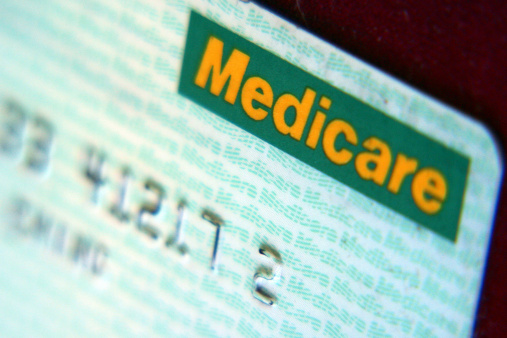
For more than two decades we have helped individuals across Kentucky get SSD benefits. We have the legal skills and experience to handle the paperwork and aggressively fight for your rights.
Voted Sixth Year in a Row
 The monthly income provided by Social Security Disability Insurance (SSDI) is very important for many disabled people. However, this is not the only benefit that you can become eligible for as a result of qualifying for SSDI. You may also be able to obtain health insurance through Medicare.
The monthly income provided by Social Security Disability Insurance (SSDI) is very important for many disabled people. However, this is not the only benefit that you can become eligible for as a result of qualifying for SSDI. You may also be able to obtain health insurance through Medicare.
Medicare is a health insurance program provided by the federal government. It is different from Medicaid, which is a needs-based form of government insurance.
These Medicare plans can provide you with broader coverage than Medicaid and provide higher benefits payments to doctors, which means that you may have more options about which physicians you can see, since not all providers accept Medicaid.
However, not everyone can sign up for Medicare, and the benefits program primarily provides insurance to those over the age of 65. It is important to realize that you can access this program as a result of becoming eligible for disability benefits.
If you are under the age of 65 and are too disabled to work, you can get health insurance coverage through Medicare as a part of your SSDI benefits. There is a 24-month waiting period for most recipients.
If you have Lou Gehrig’s disease, you may become eligible for Medicare coverage as soon as you become entitled to disability benefits. If you have end-stage renal disease, you may become eligible for Medicare starting either the month of a kidney transplant or the third month after the month that a regular course of renal dialysis starts.
When you are on SSDI benefits and you become eligible for Medicare, your coverage will begin automatically once the qualifying criteria are met. In other words, your coverage will start once you have qualified for SSDI and passed the 24-month waiting period, once you have had your kidney transplant or dialysis, or once you have been approved for benefits based on Lou Gehrig’s disease.
Your Medicare card will be sent to you automatically once you have become eligible. If you get your benefits after the 24-month waiting period, the Medicare card will come to you in the mail prior to receiving your disability income or deposit during the 25th month of coverage.
When your Medicare card comes, you are enrolled in Part A automatically since the premiums are free. If you wish to keep Medicare Part B, you will need to begin paying the Medicare premiums. If you don’t want to pay the premiums and don’t want this coverage, you can return the card.
You will also become eligible for Medicare Part D prescription coverage at the same time that your other eligibility kicks in. You have to pick a plan and join that plan during the three months before or the three months after your 25th month of disability. Premiums must be paid for if you opt for Medicare Part D coverage.
Medigap coverage may also be available if you wish to purchase it, although federal laws do not require insurance companies to offer Medigap coverage if you are under 65.
Medicare benefits continue for the duration of the time that you are receiving SSDI benefits. If you wish to try to go back to work while still on SSDI, your benefits can also continue through the trial work period and for at least 93 months after the trial period has ended and you have returned to work. Following the end of the trial period and the extended eligibility period, you may still be able to keep Medicare coverage provided you pay the premiums.
Understanding your insurance options is important. An experienced Lexington disability lawyer at the Frank Jenkins Law Office can help you make sure you get all of the benefits you deserve, including Medicare.
Qualifying for SSDI benefits as soon as possible is essential so you can start the clock on the waiting period in order to qualify for Medicare benefits as soon as possible. Our experienced SSD lawyers can help you to complete your application and keep your claim moving forward.
At the Frank Jenkins Law Office, our Lexington disability lawyers are here to help with all disability matters. Call us today at 859-389-9344 or contact us using our online form for a free consultation.